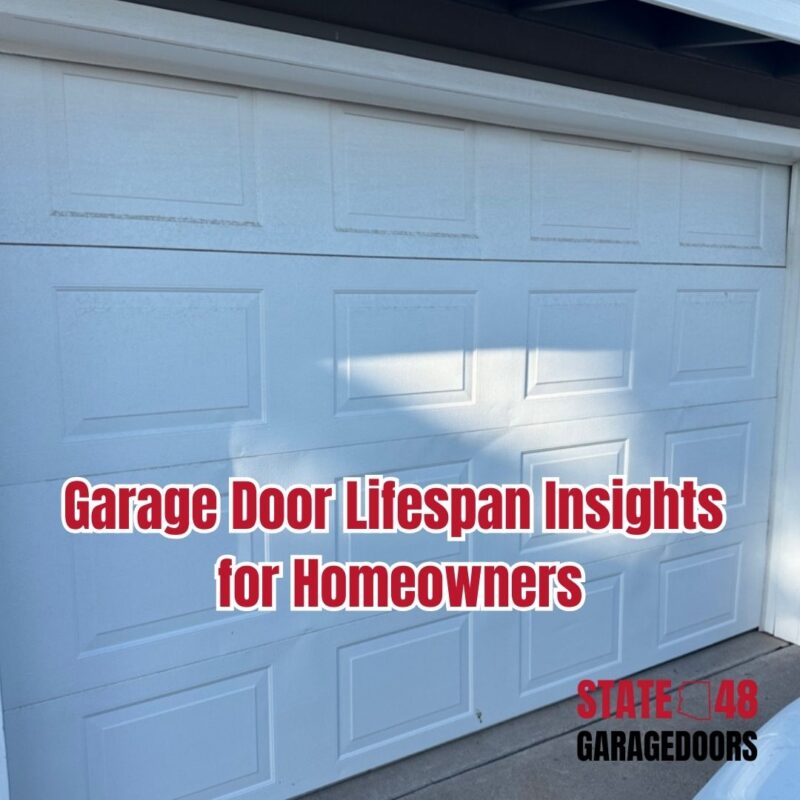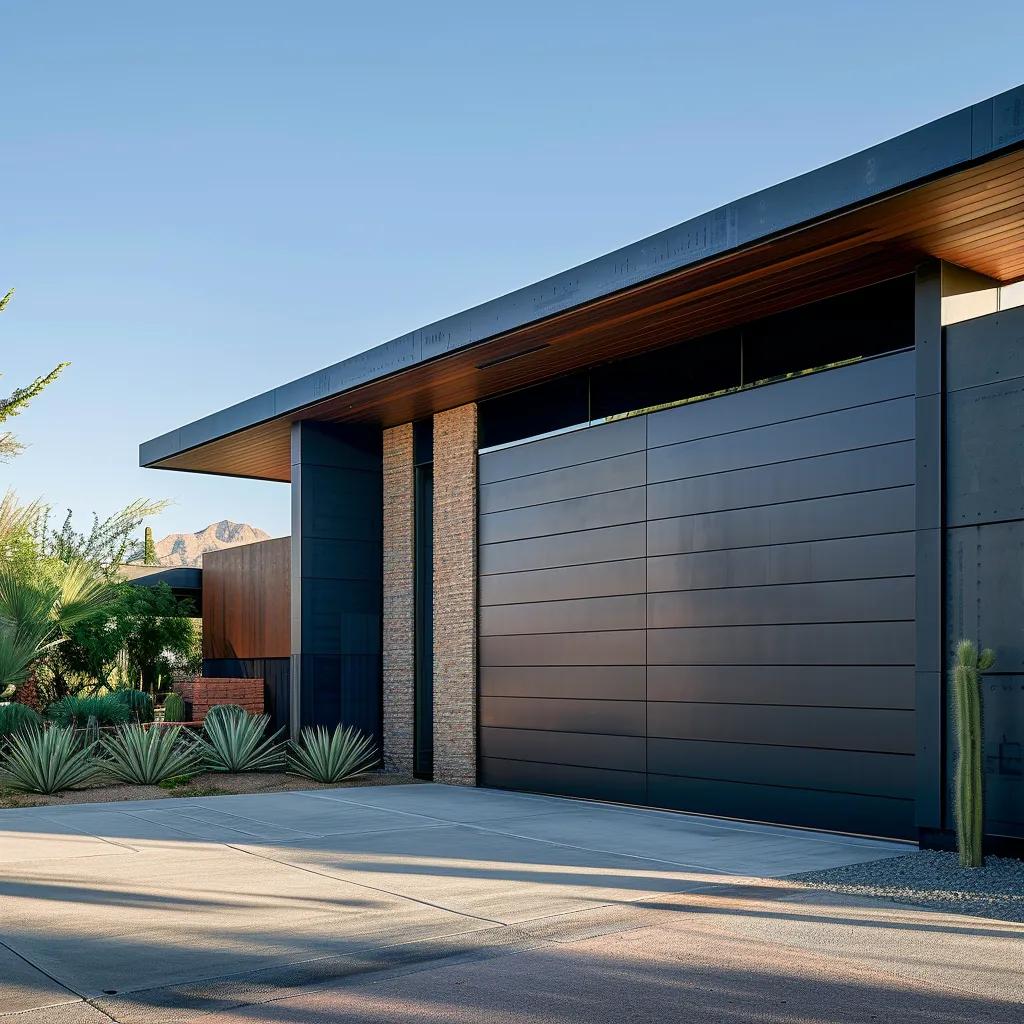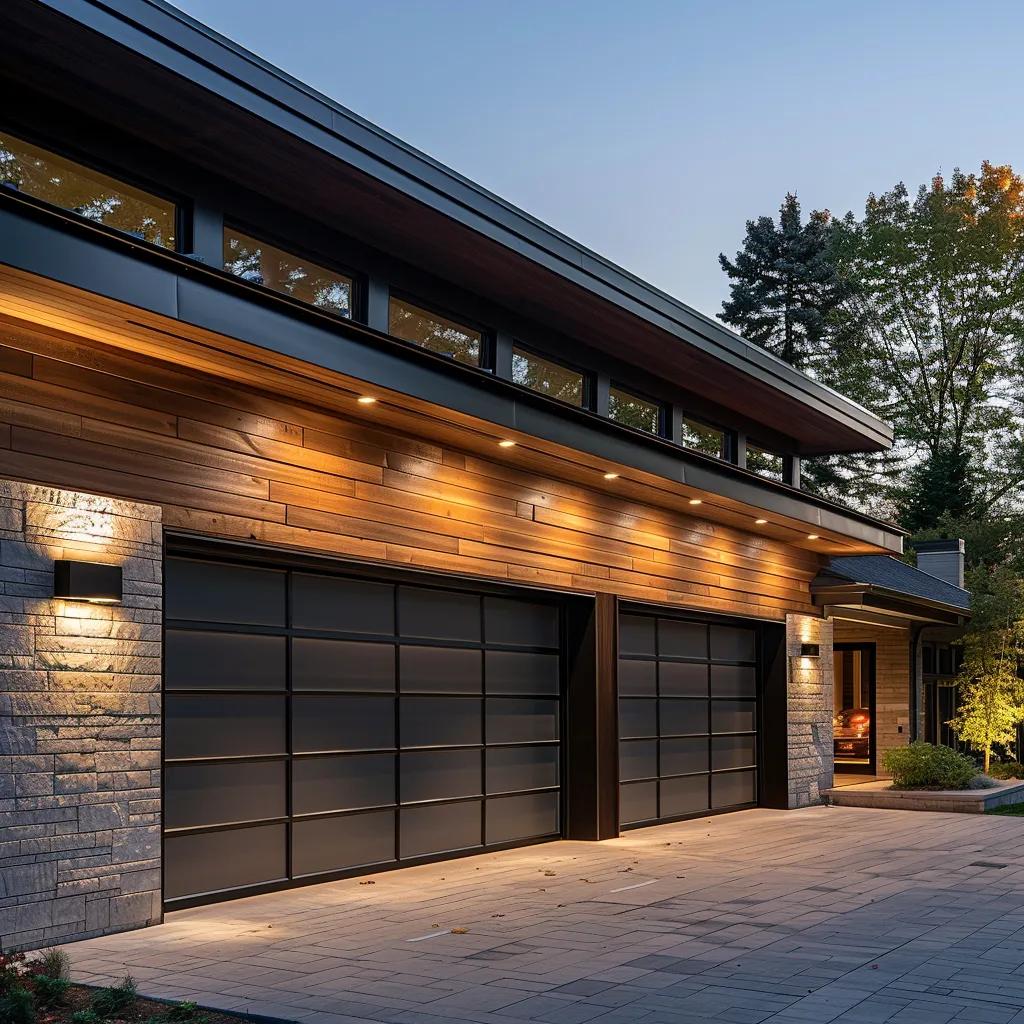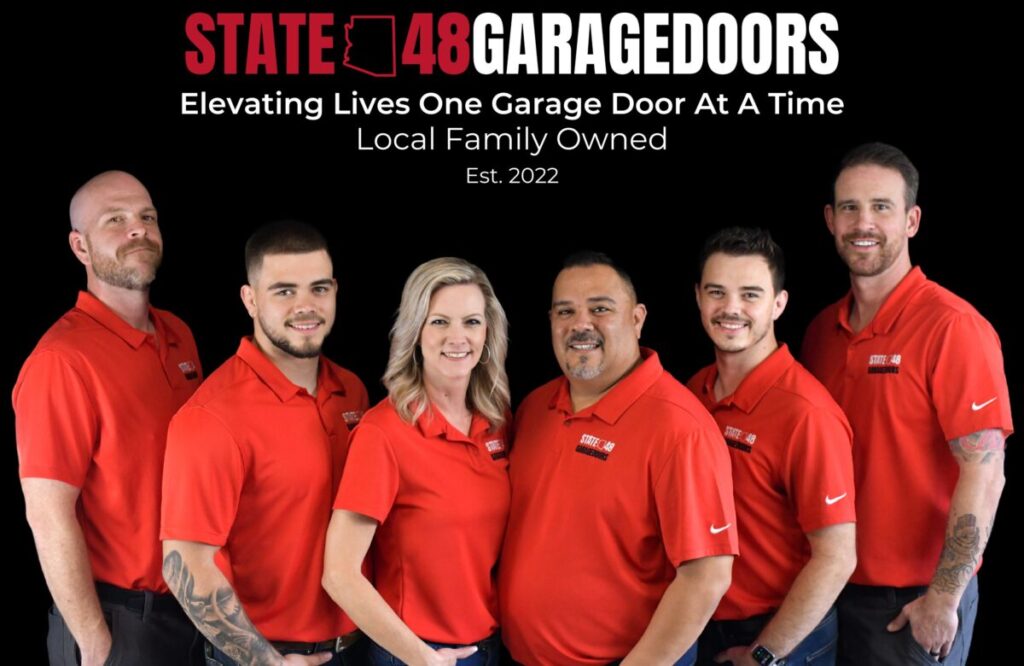
The Lifespan of a Garage Door: How Long Do They Really Last?
When you’re focused on maintaining your home’s curb appeal and functionality, your garage door plays a major role. It protects your vehicle and stored items from rain, snow, and extreme heat. It also supports energy efficiency by keeping out moisture and debris. But many homeowners ask an important question: how long do garage doors last? The answer depends on factors like material quality, climate, and regular maintenance—all of which can affect performance and longevity.
In Phoenix, garage doors face tough conditions. Intense heat, occasional monsoons, and dust can all shorten their lifespan. Knowing what affects your garage door’s longevity can save you money and stress. For dependable service, garage door repair in Phoenix can help keep your door in top shape.
As a certified garage door technician, I’ll explain what impacts door lifespan in simple terms. You can then book a free inspection and stay ahead with repairs or upgrades when needed.
In this article, you’ll learn the main factors that determine how long a garage door lasts. We’ll look at the average service life of different types and the best ways to extend it. You’ll also discover warning signs that suggest your door may need replacing.
Finally, we’ll share practical steps to help your garage door work better for longer. With regular lubrication, visual checks, and expert inspections, you can protect your investment. Let’s dive into the details so you’ll know how to keep your door working well despite wear, corrosion, or harsh weather.
Key Factors Determining Garage Door Lifespan

Your garage door’s lifespan depends on several key factors. One of the most important is the quality of the material and construction. High-grade materials like steel, composite, or heavy-duty aluminum are more durable. They resist damage from rain, snow, and extreme temperatures much better than cheaper alternatives.
Lower quality materials can wear down quickly when exposed to constant weather, salt, and dirt. In Phoenix, the intense heat and dust make this even more important. Even the best weatherstripping and protective coatings can only do so much. That’s why choosing the right material is critical in such a harsh climate.
Material Quality and Construction Impact
The strength and construction of your garage door play a direct role in how long it lasts. Solid steel doors with tough coatings resist rust, corrosion, and impact damage far better than thin, low-grade options.
Manufacturing techniques matter, too. Precision welding and high-quality assembly add to a door’s durability. Components like torsion springs, tracks, and panels built for high performance are more resistant to wear. This helps reduce problems caused by vibration, grease buildup, and debris.
Frequency of Use and Operating Conditions
How often you use your garage door and the conditions under which it operates are important. Every time the door opens and closes, its moving parts experience stress. In busy households or commercial settings, frequent use accelerates wear on garage door springs, weatherstripping, and hinges. Consistent operation under heavy loads or during extreme weather conditions can cause components to become brittle. Regular use in a climate that experiences both scorching heat and humidity will demand more rigorous maintenance to ensure smooth operation.
Local Climate and Environmental Exposure
Local weather has a direct impact on the longevity of your garage door. In areas exposed to heavy rain, snow, and sunlight, the door’s coating and seals might deteriorate faster. For example, the high daytime temperatures and subsequent cool nights in Phoenix can lead to metal expansion and contraction, causing stress and potential damage over time. Exposure to salt from coastal winds or from deicing salts in winter can speed up corrosion on metal components. It’s essential to choose a door with a weather-resistant finish and robust weatherstripping to combat these climate-related issues.
Initial Installation Quality Significance
Even the best materials can underperform if the installation is flawed. A garage door that is improperly aligned or installed without enough emphasis on structural support is more prone to problems like sagging, increased friction, and unusual noise patterns. Proper alignment and tension in the torsion springs and tracks ensure that the door functions smoothly. An installation done by a professional garage door service company can mean the difference between years of reliable service and frequent maintenance problems.
Adherence to Garage DoorMaintenance Schedules
Finally, regular maintenance plays a huge role in extending the life of your garage door. Following the manufacturer’s guidelines regarding lubrication, inspections, and adjustments is crucial. Periodic professional inspections can catch small issues before they become major problems. Even tasks like cleaning debris from the door’s tracks or re-tightening loose screws can prevent costly repairs in the future. Being proactive about maintenance not only ensures safety but also maximizes your overall budget by delaying the need for a complete garage door replacement.
Average Service Life Expectations for Common Garage Doors

Garage doors come in a range of materials, each with its own typical service life. Knowing the average lifespan of steel, wood, aluminum, and composite garage doors can help you plan maintenance and budgeting accordingly. Generally, a well-maintained steelgarage door may last between 20 to 30 years, whereas wood doors may require replacement sooner due to weathering and rot. With proper care, aluminum doors can perform similarly to steel, but they might struggle with dents. New composite materials, made for better energyefficiency and lower maintenance, provide a balance between durability and aesthetic appeal.
SteelGarage Door Lifespan Estimates
Steelgarage doors are popular due to their durability and low maintenance. On average, a quality steeldoor will last around 20 to 30 years. They resist the impacts of extreme weather and are less prone to damage from rain, snow, and heat when coated properly. However, if a steeldoor gets scratched and the protective paint is compromised, rust can set in and reduce its effective lifespan. Routine cleaning, repainting, and prompt rust repairs can help extend a steeldoor’s service life, ensuring that it remains a top garage door option for homeowners looking for longevity and a low maintenance routine.
WoodGarage DoorLongevity Projections
Woodgarage doors offer natural appeal and an attractive aesthetic but often require more upkeep. Typically, a well-maintained wooddoor may last 15 to 20 years, depending on the type of wood used and the quality of weatherproofing. Wood is more susceptible to moisture, rot, and insect damage if not treated regularly. In Phoenix’s environment, where temperature fluctuations and occasional high moisture levels occur, proper sealing and periodic staining are essential. Although wood doors add significant value and charm to a home, they demand more frequent maintenance practices like repainting and refinishing to combat the effects of weather and environmental exposure.
Aluminum DoorDurability Periods
Aluminum garage doors are lightweight and resistant to rust, making them a good choice for areas with high humidity or salt exposure. However, their lighter construction can sometimes lead to dents or bending if not adequately reinforced. On average, aluminum doors may last about 20 to 25 years, although quality construction and high-grade materials can potentially extend this timeframe. Their smooth operation and resistance to corrosion make them popular among homeowners seeking a balance of durability and energyefficiency. With proper installation and regular maintenance, aluminum doors can maintain functionality even under conditions of extreme temperature variation and sun exposure.
Composite Door Service Life Ranges
Composite garage doors, which are made of engineered materials like fiberglass combined with wood or foam cores, offer excellent resistance to weather and require very little upkeep. They can provide a service life ranging from 25 to 30 years, often surpassing traditional wood doors in durability while maintaining an appealing aesthetic. These doors combine the strength of metals with the natural look of wood, providing benefits like improved insulation, reduced maintenance needs, and better resistance to extreme weather. Composite doors are increasingly popular among homeowners who want a long-lasting, maintenance-friendly option that doesn’t sacrifice style or performance.
Understanding Garage DoorDurability by Material

Different garage door materials exhibit unique durability characteristics based on their composition and manufacturing processes. By understanding how steel, wood, aluminum, and modern composite materials withstand the challenges of heavy use and extreme weather, you can choose a door that aligns with your specific needs. In Phoenix, where abrasive dust, heat, and occasional moisture are daily challenges, selecting a door with proven resilience is essential to avoid constant repairs or replacements. Let’s explore each material type’s inherent advantages in terms of resistance to dents, weather-related wear, and maintenance needs.
Steel Doors Resistance to Dents and Weather
Steel doors are known for their strength and durability. They offer excellent resistance to dents and physical impacts, even when exposed to heavy winds, hail, or accidental knocks. The high-tensile strength of steel makes it ideal for environments where robustness is essential. Additionally, when steel doors are coated with high-quality paint, they resist corrosion caused by extreme weather, rain, and even a slight amount of salt in the environment. The reinforced construction of many steel doors provides extra protection against wear and tear, keeping the door functioning efficiently and looking good for decades.
Wood Doors Natural Appeal and Weathering Characteristics
Wood doors bring a classic, warm aesthetic to your home, but their durability can be mixed due to natural weathering characteristics. While wood is naturally insulating and visually appealing, it is prone to issues such as rot, warping, and insect damage when exposed to prolonged moisture and sunlight. However, with regular maintenance such as sealing, staining, or painting, wood doors can be preserved. The challenge is maintaining protection against weather elements like rain or snow, which can cause wood to swell and crack. Homeowners who prefer wood doors need to commit to an annual maintenance schedule to protect and preserve their natural beauty.
Lightweight Aluminum Doors Resistance to Corrosion
Aluminum doors are favored for their lightweight design and natural resistance to corrosion. Unlike steel, aluminum does not rust, making it an excellent option for humid environments or areas where exposure to salt or water is an issue. They also require less maintenance in terms of repainting or resealing. However, the light construction can sometimes be a double-edged sword, as aluminum doors are more prone to dents from physical impacts. Despite this, with proper design reinforcements and added coatings, aluminum doors can perform admirably in harsh conditions, providing a reliable and low-maintenance solution for many homeowners.
Modern Composite Doors Low Upkeep Advantages
Modern composite doors have significantly improved durability by combining various materials to enhance strength and reduce maintenance. These doors take advantage of engineered materials that resist warping, cracking, and fading. Composite doors offer a superior insulator compared to plain metal doors and do not require frequent repainting or weatherproofing treatments. Their construction typically includes a resin-based exterior combined with an insulating core, making them resistant to the damage caused by UV rays, extreme heat, and moisture. For homeowners looking for a door that provides both aesthetic appeal and extended longevity with minimal maintenance, composite doors are an increasingly attractive option.
Essential Garage DoorMaintenance Practices for Longevity

To maximize the lifespan of your garage door, proactive maintenance is essential. Regular upkeep not only enhances the aesthetic and operational quality of your door but also prevents costly repairs and premature replacements. Routine tasks include visual inspections, proper lubrication of moving parts, and ensuring that all mechanical components are operating within safe parameters. In the Phoenix area, where dust, heat, and occasional rain are common, maintaining your door involves more frequent cleaning and thorough checks. By staying on top of these practices, you reduce the impact of wear and tear, ensure optimal performance, and extend the door’s overall service life.
Performing Regular Visual Inspections Yourself
It is crucial to periodically inspect your garage door for any visible signs of wear and damage. Look for cracks, rust spots, or loose hardware that might indicate underlying issues. Make sure the panels are aligned correctly and that there are no signs of warping or sagging. Regular visual checks can help you notice minor issues before they turn into serious problems. This practice will also alert you to damage from weather elements such as heavy rain or intense sunlight that might affect the door’s coating or integrity.
Lubricating Moving Components Correctly
Proper lubrication is one of the simplest yet most effective ways to extend the life of your garage door. Components such as hinges, rollers, springs, and tracks require regular maintenance with suitable lubricants to minimize friction and reduce wear. Using a high-quality, weather-resistant lubricant will prevent components from becoming brittle due to heat and moisture. Apply lubrication evenly along the moving parts while ensuring that you wipe away any excess to avoid the buildup of dirt and debris. This routine maintenance not only helps in smooth operation but also protects against unexpected breakdowns.
Keeping Tracks Clear Debris Free and Aligned
The tracks that guide your garage door’s movement are critical for its function. Over time, dust, leaves, and other debris can accumulate in these tracks, leading to misalignment and increased wear on the rollers. Regularly cleaning the tracks, checking for bends or damage, and ensuring they remain securely fastened can prevent many operational issues. In addition, proper alignment is necessary to avoid excessive tension on the door’s springs, which can cause them to wear out prematurely. A clean, well-aligned track system makes for quieter operation and reduces the overall strain on the door’s mechanics.
Testing Auto-Reverse Safety Features Routinely
Modern garage doors are equipped with auto-reverse safety features to protect you and your loved ones. These systems automatically reverse the door’s movement if an obstruction is detected during closing. Regularly testing this feature by placing an object in the door’s path ensures that the safety mechanism functions correctly. If the door does not reverse upon encountering an obstacle, it is time to call a professional garage door service immediately. Safety should never be compromised, as proper testing and calibration of the auto-reverse feature can prevent serious injuries and property damage.
Arranging Annual Professional Servicing
While you can perform many maintenance tasks yourself, scheduling an annual professional service ensures that all mechanical, electrical, and structural aspects of your garage door are thoroughly inspected. A trained technician can detect potential issues that might elude a regular homeowner inspection, such as internal spring fatigue or minor misalignments in the door’s assembly. This professional check-up not only helps in extending the door’s lifespan but also increases its energyefficiency and overall safety. An annual service is a small investment compared to the potential costs of a major repair or premature replacement.
Recognizing Indicators Your Garage Door Is Nearing Replacement

Over time, even the most well-maintained garage doors show signs of aging. Recognizing early indicators of deterioration allows you to address issues before they escalate into safety hazards or result in expensive repairs. The following indicators can help you determine whether it’s time to consider a replacement rather than just a repair. By paying close attention to these signs, you can plan for a garage door replacement at the right time, ensuring continued safety, efficiency, and aesthetics.
Persistent Grinding Scraping or Straining Noises
If you notice that your garage door is making persistent grinding, scraping, or straining noises, it could be a sign that critical components are wearing out. Such sounds indicate that parts like rollers, hinges, or torsion springs may be damaged or lacking proper lubrication. These noises are not only annoying but also serve as warnings that the door might soon stop operating smoothly. Addressing these issues early with a professional repair may extend the door’s life; however, if the sounds become more frequent or severe, it might be time to consider a replacement.
Noticeably Slowed or Hesitant Operation
A garage door that used to operate quickly and smoothly but now seems slow or hesitant in movement is another red flag. Sluggish operation usually indicates that the door’s moving parts are experiencing increased friction due to wear or poor lubrication. A slowing door might also suggest worn-out springs or an imbalance in the door’s weight distribution due to damaged panels. This can not only reduce the door’s lifespan but also compromise safety. If you experience a significant slowdown, it’s advisable to have the door inspected to determine whether simple repairs or a full replacement is necessary.
Visible Sagging Warping Rust or Panel Damage
Visible signs of sagging, warping, rust, or panel damage are obvious indicators that your garage door is nearing the end of its useful life. These issues not only affect the aesthetic appeal of your home but also impair the structural integrity of the door. Rust and warping, in particular, can lead to complete panel failures and make the door unsafe to operate. Even if repair might seem possible, frequent recurrence of these problems suggests that the door’s material quality is deteriorating beyond effective repair measures. If multiple panels show damage, a replacement might be the most cost-effective and safe choice.
Increasing Frequency of Breakdowns and Repair Costs
If you find yourself repeatedly calling for garage door repairs, and if the repair costs are steadily increasing, it is a strong indicator that the door is reaching the end of its functional life. Frequent breakdowns not only disrupt your daily routine but also hint at underlying structural issues. When the repair expenses begin to rival the price of a new door installation, it is often more prudent to invest in a replacement rather than continually patching up an aging system.
Failure of Critical Safety Features
The safety features of your garage door—such as the auto-reverse mechanism—play a crucial role in protecting your family. If these features fail or work inconsistently, it is a significant warning that the door’s system is compromised. A door with unreliable safety mechanisms is not only a liability but also poses real danger to people and pets. When these critical features start to malfunction, professional inspection is a must, and replacement might ultimately be the safest solution.
Proactive Measures to Extend Your Garage Door‘s Functional Life

Taking proactive measures can significantly extend the functional life of your garage door. Adopting a maintenance mindset combined with timely upgrades will help you protect your investment, ensuring that your door remains reliable against the challenges of extreme weather, wear and tear, and mechanical fatigue. In a place like Phoenix, where guards against heat, dust, and occasional rain are critical, these measures can prevent premature breakdowns and expensive repairs. The following proactive steps can help you keep your garage door running smoothly for years to come.
Select High-Cycle Springs for Heavy Use
One of the most important components of your garage door is the springs, which bear the burden of lifting and lowering the door. Selecting high-cycle springs that are designed for heavy use is essential, especially if your door is frequently operated. High-cycle springs are engineered to handle hundreds of thousands of openings and closings, reducing the risk of unexpected fatigue and snapping. Investing in high-quality springs upfront can save you from costly emergency repairs and potential injuries associated with spring failure.
Address Minor Issues Before They Worsen
If you notice small problems—like squeaking noises, slight delays, or minor misalignments—don’t ignore them. Taking quick action, such as lubricating a roller or tightening a screw, can stop these issues from getting worse. Left unchecked, small faults can lead to larger problems and even total system failure. Regular attention and timely maintenance help you avoid costly repairs down the road.
Upgrade Weather Seals for Better Protection
Weather seals are crucial for shielding your garage from the elements. Over time, they wear out due to heat, sunlight, and moisture. Damaged seals can lead to water leaks, energy loss, and faster wear on your garage door. Upgrading to high-quality weatherstripping boosts protection against dust, extreme temperatures, and storms. Stronger seals also help preserve your garage’s insulation, reduce energy bills, and extend your door’s lifespan.
Operate the Door Gently Avoid Slamming
Aggressive use of your garage door can contribute to premature wear and damage. Learning to operate the door gently instead of slamming it every time can reduce stress on the mechanical parts. Avoiding sudden movements helps maintain proper tension in the springs and prevents undue stress on the panels and tracks. Gentle operation not only prolongs the lifespan of your door but also minimizes the occurrence of damaging vibrations and noise, ensuring that the door operates quietly and efficiently.
Consider Protective Paint or Finishes
Applying a high-quality protective paint or finish to your garage door can be one of the most effective ways to guard against weather-related damage, rust, and fading. Protective coatings act as an insulator against harmful UV rays, heat, and moisture, thereby slowing down wear and tear. This extra layer of defense is particularly useful in areas with intense sunlight and temperature fluctuations. Regular repainting or refinishing, in combination with proper cleaning, can help maintain the aesthetic appeal and structural integrity of your door over many years.
Frequently Asked Questions
Q: How can I tell if my garage doorneeds to be replaced rather than repaired? A: If you notice frequent breakdowns, increased repair costs, persistent noises, and safety feature failures, it’s likely time to consider a replacement. Regular professional inspections can help determine if repair costs are outweighing the benefits of a new installation.
Q: What maintenancetasks can I perform on my own? A: You can perform visual inspections, lubricate moving components, clean the tracks, and test the auto-reverse safety features yourself. However, it is advisable to schedule annual professional servicing to catch issues that may not be obvious.
Q: How do environmental factors in Phoenixaffect my garage door? A: In Phoenix, extreme heat, dust, and occasional rain can accelerate wear and tear on a garage door. Choosing materials with high resistance to UV exposure and weather-related damage, coupled with regular maintenance, is crucial for longevity.
Q: Are composite garage doors worth the extra maintenance cost?
A: Composite garage doors typically require less maintenance than traditional wood doors. They offer the look of natural materials with greater durability. These doors tend to last longer and provide a good balance of style and strength, making them a cost-effective choice over time.
Q: What role do the springs play in the lifespan of my garage door?
A: Torsion and extension springs are essential for lifting and lowering the door smoothly. High-cycle springs, built for frequent use, can greatly extend your door’s lifespan. They reduce the risk of sudden spring failure caused by daily wear.
Q: How often should I schedule professional garage door servicing?
A: It’s best to arrange a professional inspection or tune-up at least once a year. Regular servicing helps catch small issues early and ensures that all parts—including safety sensors and springs—are functioning properly.
Q: What are the best materials for a long-lasting garage door?
A: Steel and composite are top choices for durability and resistance to weather damage. However, lifespan also depends on proper installation and regular maintenance, which help keep any material performing at its best.
Maximizing Garage Door Lifespan: Proven Maintenance Strategies
Maintaining your garage door isn’t just about aesthetics—it’s about safety, convenience, and energyefficiency. With the right materials, regular maintenance, and a keen eye for warning signs, you can extend the lifespan of your door significantly. Remember that occasional professional servicing can catch early issues and prevent costly repairs down the line. If you’re experiencing any problems or simply want to secure your home’s investment, call us today for a free garage doorinspection and expert advice tailored to your needs.




